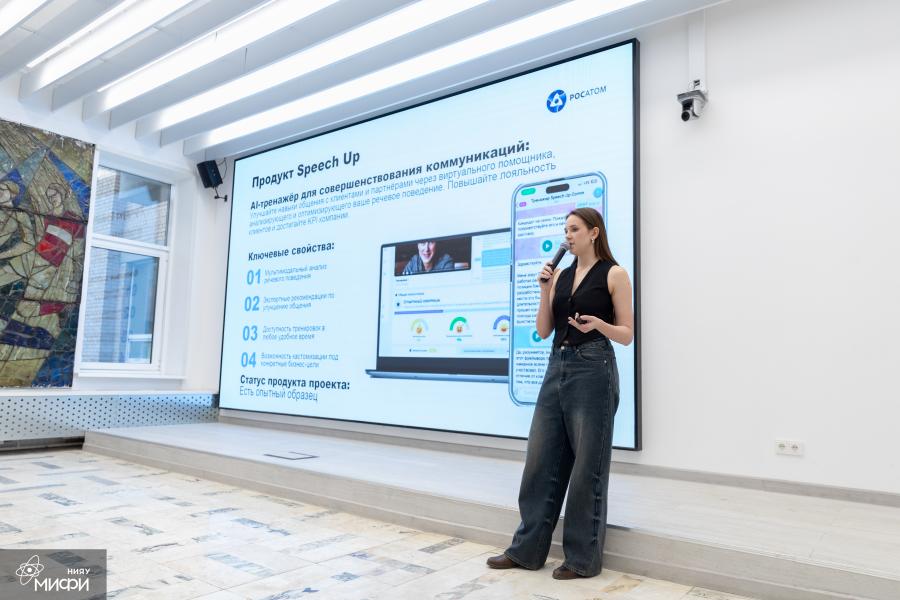Vitalina Protsenko, a 3rd-year student at the IFTEB National Research University of MEPhI, together with her team has created a communication simulator that will help improve communication skills in the field of service and sales.

Speech Up+ Communication improvement simulator is a bot that can communicate with a person as a real client or investor. A startup improves a person's communication skills in a wide variety of communication situations, even in the most difficult ones. The algorithm for working with the simulator is as follows: the user connects to a telegram bot and writes something like this: "I want to improve my communication skills, I have a meeting with an investor tomorrow, I need to protect my project. Listen to me and tell me if I'm doing this right." The telegram bot sends voice messages in response, as if "from an investor," starting with a greeting and introduction.
"The project has an advantage over competitors – speech behavior management,– says Vitalina Protsenko. – For example, you are engaged in the hotel business and, as an administrator, you need to improve your skills in dealing with the most difficult client, who is dissatisfied with absolutely everything, and even not sober. The bot creates such a client, emotionally "guides" him, recording voice messages "from him" in the appropriate tone and vocabulary. And the user learns to respond to him, depending on the task: to calm down, to solve the problem. The next voice messages of the bot depend on the person's response, but initially the bot can be given the most difficult task – for example, a conversation with an intoxicated client "on edge" – and the bot will perform it, and the user will have to show maximum patience to learn how to communicate with such clients. The bot reacts to emotion, it reads intonation and vocabulary. The bot also monitors profanity, parasitic words, the speed of speech, the presence of all sorts of "uh-uh" and "nuuu", that is, it pays attention to what people usually do not control. To do this, we have psychologists in our team, they were the ones who gave our database such an invoice."
The speaker's pitch is controlled by the neural network. The Speech Up+ startup team used several pre-trained neural networks, as well as networks trained by the team independently on their data sets. Each neural network is responsible for a specific characteristic of speech behavior: for transcription, the definition of emotions in the text of speech and in the voice, congruence, confidence, psycholinguistic markers. At the end of the conversation, the bot performs a post-analysis of both the emotional component of the conversation and the vocabulary.
The communications training market is not very extensive yet, but it still exists, and now the Speech Up+ startup team is taking a course at the Rosatom University Technology Accelerator and the National Research Nuclear University MEPhI. Here, the guys learn product competencies and project management skills, learn how to build a financial plan, look for customers and make the first sales.
In the future, the developers plan to scale the project. "Our strategic goal is to create communication with a bot client through a video conferencing system, for example, a teleconference. The user will still use the bot to write or tell what kind of communication he wants to work out, the bot will send him a link to connect and then conduct a dialogue with him in real time, completely imitating a real interlocutor in a given situation. There is no such thing in the world yet," concludes Vitalina Protsenko.





